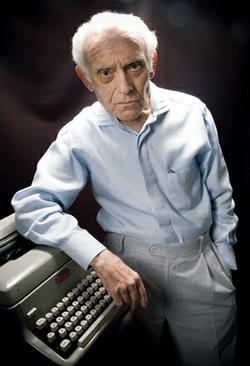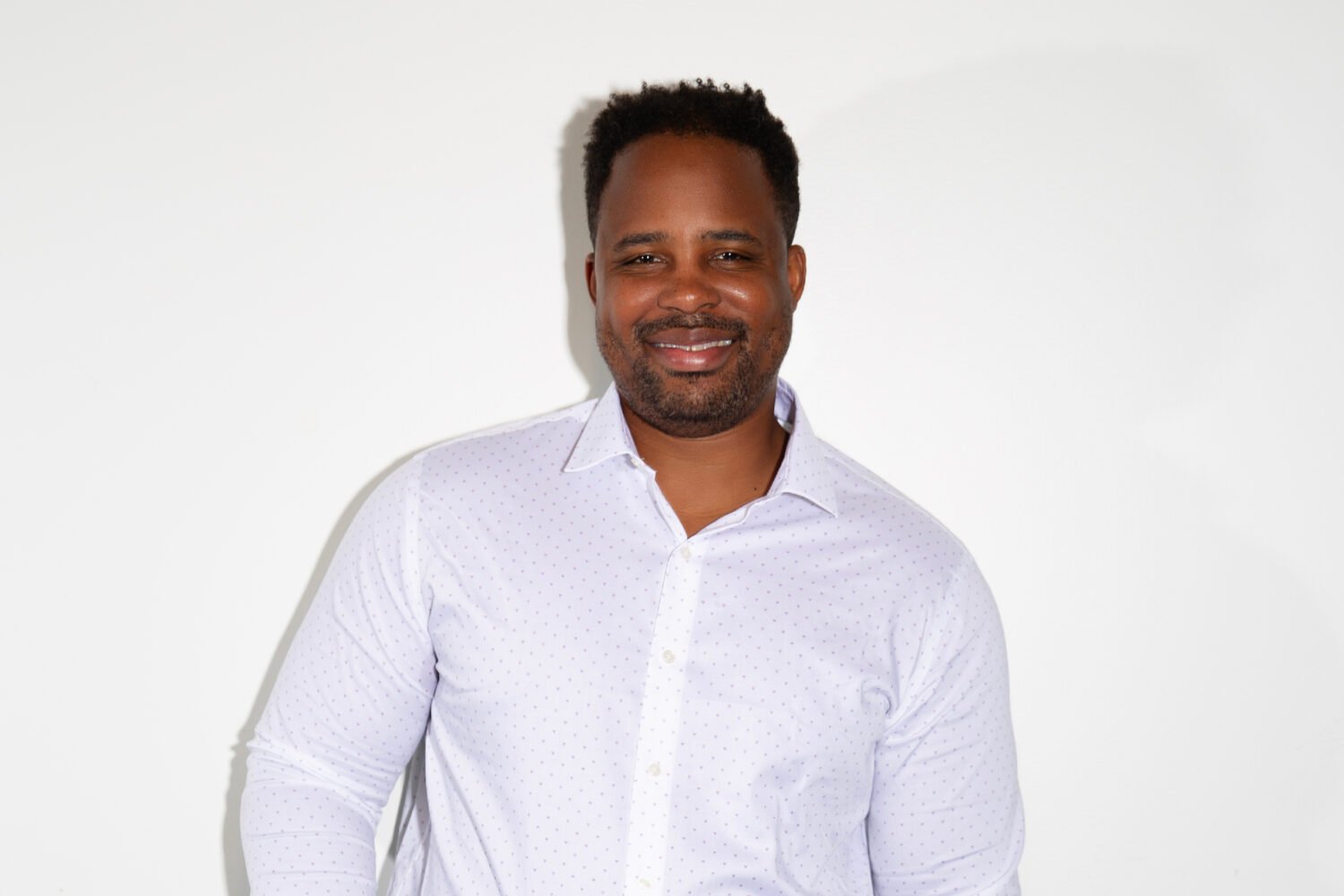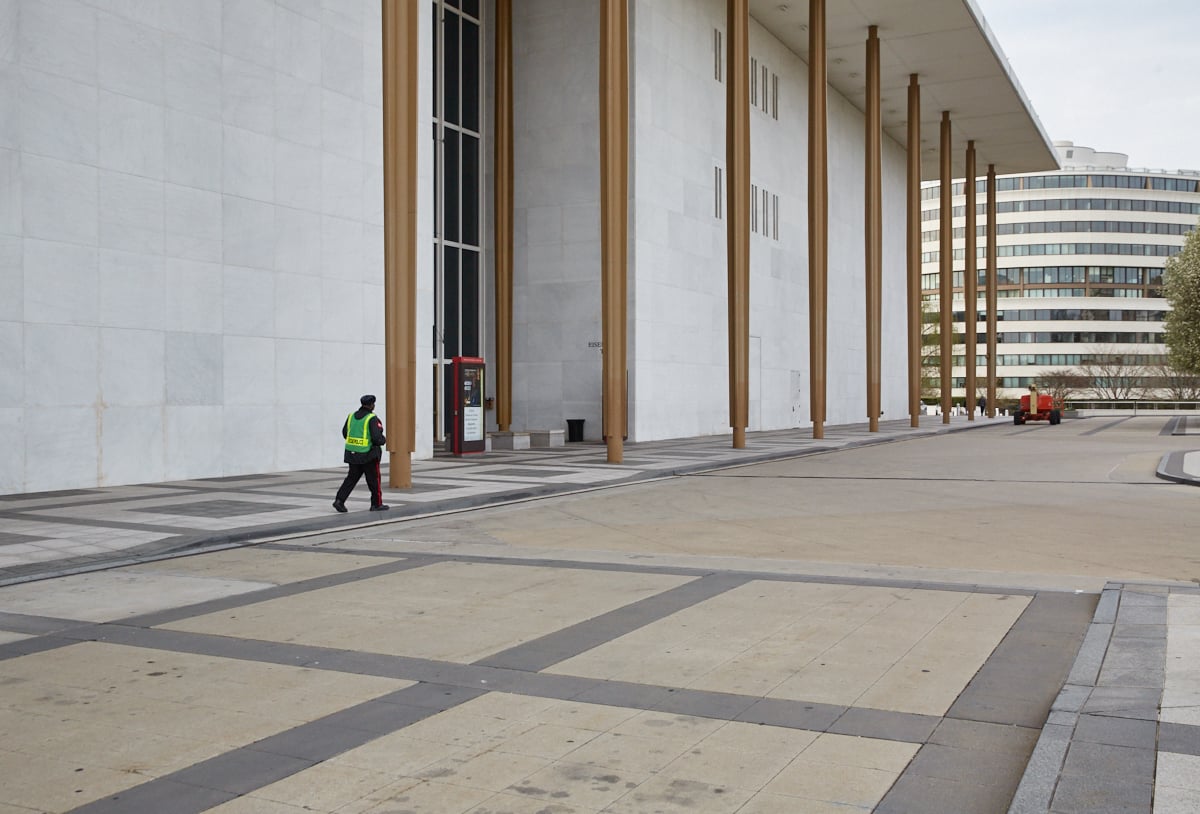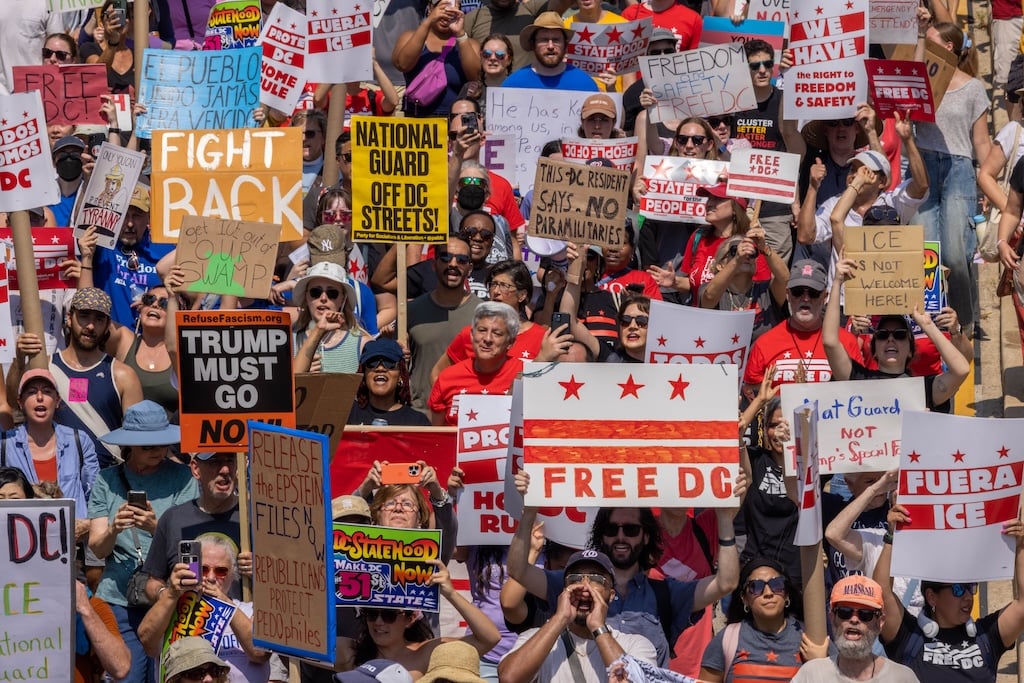
Vic Gold reaches two milestones this fall, his 80th birthday and the passage of 50 years since he arrived here as a crewcut political neophyte. Ten presidents and 17 Redskins coaches later, he interviews himself about the Washington he knows and what he’s learned.
A theme this election year is that Washington is more partisan than ever. That true?
Mere campaign blather. When Nixon was inaugurated 40 years ago, he promised to “bring us together” because people were wringing their hands over how “partisan” politics had become. And George H.W. Bush in 1989 said we needed a “kinder, gentler” atmosphere in Washington, followed by Bill Clinton’s promise to end partisan “gridlock.” Partisanship is the nature of democratic government. If you’re looking for a non-partisan capital, move to Beijing.
But what about the tone of partisan debate—the idea that politics has become a blood sport, meaner than ever?
Meaner and nastier than it was during the Cold War 1950s and ’60s? I don’t think so. What makes it seem meaner and nastier is the round-the-clock chatter on talk radio and cable news. Once radio and TV producers discovered that controversy brings in audiences, they threw away the straight-news format. They wake up every morning thinking of ways to start political dogfights.
Not that I come to this with clean hands. Back in the 1970s, after Vice President Spiro Agnew criticized the networks for not being open to conservative opinion, a couple decided to stage mini-debates between liberal and conservative spokesmen. The first to use this format was CBS. Remember James J. Kilpatrick and Shana Alexander on 60 Minutes? The second was ABC, kicking off its new show Good Morning America. They brought in Frank Mankiewicz to argue the liberal side and me—I’d just left Agnew’s staff—as the conservative yakker.
Our first debate was on the New York City bailout. Frank and I discussed it ahead of time and agreed we could have a reasonable five-minute exchange of views. But that wasn’t what the director wanted. He asked us to raise the volume and wake up the early-morning viewers. That we did. I called Frank a knee-jerk liberal, and he called me a right-wing nut. None of which had anything to do with the bailout, but the director invited us back the following week.
Were you and Mankiewicz still speaking after the show?
It turned out to be the beginning of a beautiful friendship. We discovered we were both St. Louis Cardinals baseball nuts and decided to organize a fan club, the Stan Musial Society. Frank had been with Bobby Kennedy and George McGovern, and I’d been with Barry Goldwater and Spiro Agnew, but it made no difference. Sports conquers all.
Sports in Washington means the Redskins. You’ve been a season-ticket holder for how long?
Since 1959, when they played their games at Griffith Stadium and there wasn’t a black player on the team. They finally integrated when Bobby Mitchell came over from the Cleveland Browns but started winning only when Edward Bennett Williams took over and brought in Vince Lombardi and then George Allen to coach. It had a kinetic effect on the town.
In fact, if I had to point to one single change that transformed Washington in the past half century, it wouldn’t be the coming of the Metro or home rule for DC but the Redskins’ starting to win. This is a splintered community—the Virginia and Maryland suburbs, the District’s inner city—but our sports teams bring us together. Not only the Redskins but Abe Pollin’s team—I still think of them as the Bullets—winning the NBA championship in 1978. When Wes Unseld sank that winning free throw, the town erupted. And who can forget that euphoric Sunday in 1972 when the Skins beat the Cowboys for the NFC championship?
Getting back to the tone of political debate, what about the megagrowth of the lobbying industry? Hasn’t that had a negative effect?
Absolutely. You throw big money into the mix, and things are bound to get worse. But don’t put all lobbyists into the same pot. We’ve had people like Bryce Harlow and Jack Valenti who set the standard for civility.
What bothers me today is the number of senators and congressmen who give up public service to go into influence peddling on K Street. Money, money, money. I remember what my old boss Barry Goldwater said when he left the Senate and was asked whether he planned to go into lobbying: “No, I’m too old to pimp.”
But don’t blame just the lobbyists—blame the growth of government. Fifty years ago we had a federal bureaucracy one-fifth the size it is today, and the special interests needed only one-fifth the number of lobbyists. Big government is the mother’s milk of the lobbying industry.
Several years ago you wrote about burning your law degree because you were unhappy with what was going on in the legal profession. Still feel that way?
I burned my license, not my law degree. Once a lawyer, always a lawyer, unless you’re disbarred, which isn’t likely to happen in my case because I haven’t practiced since Fred Vinson was Chief Justice.
Actually, I’m proud of having been part of the legal profession when it was still a profession and not a business where you see ads, even billboards, that say everything but labor day sale—two lawsuits for the price of one!
Not that there aren’t lawyers around who still act like officers of the court. Back when I was in law school at the University of Alabama, my roommate, Chuck Morgan, and I used to read about Edward Bennett Williams and think, “That’s the kind of lawyer we want to be.” Williams was fearless, defending unpopular clients—Frank Costello, Jimmy Hoffa, Joe McCarthy—and doing it in a way that reflected the highest standards of the bar.
Years later, after we came to Washington—Chuck was head of the local office of the American Civil Liberties Union—we both got the chance to know Williams. Sometimes you meet a person you look up to from a distance and he disappoints. Williams didn’t. He had a gut sense of justice and the most acute legal mind I’d ever encountered. The closest thing to him today, I’d say—I’ve never met the guy, but he fits the mold—is Brendan Sullivan. That line he used years ago before a congressional committee—something like “What am I, a potted plant?”—reminded me of Williams.
Another of your bosses, Vice President Spiro Agnew, coined the phrase “nattering nabobs of negativism.” Did you write that for him?
No, Bill Safire wrote it during the 1970 midterm campaign. I wrote speeches for Agnew, but my real job was dealing with the news media as his press secretary. I burned out after two years, before he got in trouble with the IRS and had to resign. But I have great memories of that period. Agnew’s critics put him down as a boob, but he was one of the most intellectually curious politicians I’ve ever known. He also had a great sense of humor. I mean a genuine sense of humor, not the scripted wit that passes for humor these days when politicians deliver speeches at the Gridiron.
What about Agnew’s relationship with Frank Sinatra? An odd political couple.
What was odd about it? Sinatra told me that Shirley MacLaine once asked him what he and “that right-wing monster” Agnew could possibly talk about, and he answered, “We talk about you, baby.” Agnew and Sinatra had a lot in common. They were both second-generation Americans with Mediterranean temperaments, neither of whom cared for the radical movement of the ’60s or the news media in general. They had great times together, playing golf, trashing the Chicago Seven, and cursing the networks.
The New York Times once referred to you as “Agnew’s Agnew.” What was that all about?
I considered it flattering at the time. A press secretary’s first concern should be representing his boss, not winning popularity contests. That’s why, of all the Nixonites caught up in the Watergate scandal, I respected Ron Ziegler the most. The White House press disliked him because they hated his boss, but Ron took the heat and didn’t try to curry favor or use the old Albert Speer routine—“I was blinded by ambition, so show me the money and I’ll write a book about it.”
You mentioned your admiration for Edward Bennett Williams. Who else has impressed you over the years?
George H.W. Bush is on my list. I worked for Bush 41 as a speechwriter and helped him write his autobiography. Beyond that—I’ll show my age—there was John L. Lewis, the head of the United Mine Workers. He was one of the most impressive public figures I’ve ever met, a giant of a man literally and figuratively.
Then there’s Ben Bradlee, the prototype of what a great editor and journalist should be. And Bill Buckley, the only true Renaissance man I’ve ever known personally. One of my biggest regrets is not taking Bill up on an offer to be his press secretary during the 1965 New York mayor’s race.
And on the sports circuit, there’s the closest thing to an icon an iconoclast like me could have, Alabama coach Bear Bryant, along with Stan Musial and the greatest Redskins running back ever, in my opinion, Larry Brown. Why Larry’s not in the NFL Hall of Fame is a mystery.
The biggest changes in Washington since you arrived in 1958?
The biggest has to do with civil rights and home rule for DC. The Eisenhower White House outlawed segregation in the District in the early 1950s, but the city wasn’t really integrated for another two decades. When President Kennedy learned that African ambassadors couldn’t get into the Metropolitan Club, he asked his friend Charlie Bartlett to form a club that blacks could join, and that’s how the Federal City Club was formed.
I’d come here from the South, and the first few years when my wife and I walked into a downtown restaurant, we might as well have been back in Birmingham or Jackson, Mississippi. All white faces, no real integration. I don’t think things really began to change until the inner-city riots following the King assassination in 1968 shook the community up.
Integration was a change on the plus side. On the minus side, we have the city-under-siege feeling that came in after 9/11. I look back fondly on the days when I could walk into the Capitol without being electronically frisked and no concrete barriers blocked traffic on Pennsylvania Avenue.
You’ve worked in two administrations. If there were a single piece of advice you could give the next president, what would it be?
I’d give two pieces. First, avoid creating a White House bubble by surrounding yourself with sycophantic advisers. Next, don’t buy into the vanity of leaving a presidential “legacy.” The whole legacy idea is a product of thumb-sucking columnists and egghead historians. The first president I met after I arrived here—actually, he was ex-president by that time—was Harry Truman. As many big decisions as he made, it’s still hard to imagine Truman sitting in the Oval Office thinking, “I wonder how this will affect my legacy.”
Did you ever meet John F. Kennedy?
A year after I got here, but only in passing. Literally. I was driving to the Capitol one morning and stopped at a traffic light. I looked over at the next car, and there was Senator Kennedy, driving himself to work.
It was spring, the windows were open, so I called out, “How’s it going, Senator?”—he was working on a labor bill at the time—and he shook his head and said, “Hard work,” just as the light changed.
There’s a Washington moral to that story: At the time, three blocks away, Richard Nixon, Vice President of the United States, was being driven to work, sealed off in a motorcade. But two years later I got on an elevator in the old Cafritz building and who do I run into, alone and unescorted, but former Vice President Nixon, while three blocks distant, sitting in the White House, was my old red-light pal Jack Kennedy.
If you were teaching a course in Washington 101, what textbooks would you use?
Two come to mind, one fiction, one nonfiction. First, Robert Penn Warren’s All the King’s Men, the best novel ever written about the dynamics of power in American politics. My other would be Safire’s Political Dictionary, the liveliest one-volume summary of American electoral history a political junkie could ask for.
There’ll be a lot of new people coming to town this winter. A new administration, a new Congress. Any advice?
For young staffers in the White House and on the Hill: Don’t get too impressed with yourself and your position. Most of the mistakes I’ve made in life came out of taking myself too seriously. I learned, sometimes the hard way, that the best way to show how smart you are is to keep it to yourself. In this town you make enough enemies in the natural flow of events. There’s no point in making any gratuitously.
Any examples?
Too many to count, but this being an election year, I’d caution against getting overheated during a political campaign. You lose friends, alienate people, then wake up the morning after the election to see a picture in the paper of your candidate with his arm around his opponent.
They tell you every presidential campaign is the most critical in history, the end of Western civilization if your candidate doesn’t win. It isn’t. Remember what Duane Thomas said about the Super Bowl: “If it’s the ultimate game, how come they play it again next year?”
Have something to say about this article? Send an email to editorial@washingtonian.com and your comment could appear in our next issue.
This article first appeared in the October 2008 issue of The Washingtonian. For more articles like it, click here.
















